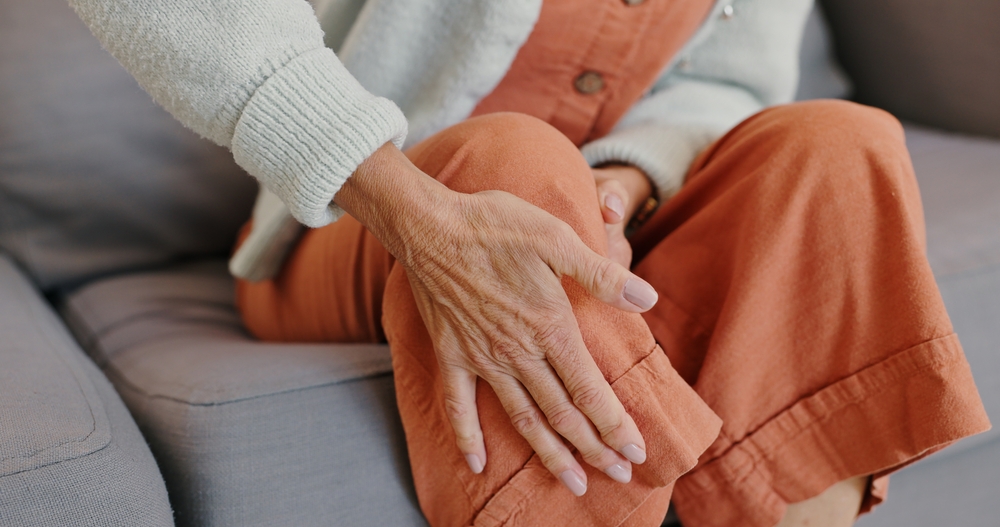Integrative Pain Management: A Fibromyalgia Case Study

Laura is a 53-year old woman who listed a number of health issues on her intake form’s line for “chief complaint”—fibromyalgia, neck and low back pain, Hashimoto’s thyroiditis, bad seasonal allergies, asthma, and digestive sensitivities. She enjoys her job as a therapist, but can find the work stressful, as she deals with high-risk individuals.
When Laura went through menopause eight years prior, she developed Hashimoto’s thyroiditis, and has since been taking Levothyroxine, a thyroid medication for underactive thyroid function. She does not tolerate heat well and she has had night sweats for more than ten years. She has been struggling with fibromyalgia with pain in her neck and back for about fifteen years, though she’s unclear if it was perhaps present long before it was diagnosed.
The neck pain may also come from a slight scoliosis in her neck. In addition, she has always felt that her ankles are weak, and six years ago she tripped and broke her ankle. It was a significant fracture that needed surgical repair with screws and plates that are still in place and cause her limited mobility of that ankle. Since that time, she finds that many of her pain problems focus on that same side of her body. The pain feels like a sharp stabbing and is worse at night and better with movement during the daytime.
She has had allergies since childhood, when she had her tonsils and adenoids removed. Spring and summer bring significant seasonal allergies that aggravate her asthma and cause her to stay indoors more. Because outdoor walks are her main activity, during those months she suffers more stiffness and pain, as well as some aggravation of her stress, because the exercise helps her manage her stress.
She has been treated by a functional medicine physician who is monitoring her thyroid function and altering her thyroid medication as needed, though she hasn’t seen him for a while. She has also been prescribed bioidentical hormones, B vitamins, vitamin D, a calcium/magnesium combination, multivitamin, digestive enzymes, and a turmeric and bromelain combination to use as needed.
A previous naturopath had done food allergy testing on her years prior and had noted a long list of food sensitivities. She continues to avoid gluten and dairy, and when she does eat those, she experiences flares in her pain, as well as bloating and abdominal discomfort.
Her dietary choices can vary, depending on the level of her stress and pain. When those are not well managed, she tends to reach for salty foods like potato chips. She does generally try to eat healthy however. She starts the day with half a banana before her morning walk. Then she has a smoothie that includes berries and almond milk. Lunch may include fruit and gluten-free crackers. She doesn’t eat much red meat, generally choosing instead chicken or tofu with rice pasta or noodles, and potatoes, peas, or stir-fried mixed vegetables.
She often wakes feeling overheated and agitated, as if her adrenals are fired up, and she sometimes needs to change her night clothes because she has sweated so much, though that has improved with the bioidentical hormones.
Despite all her health challenges, she usually feels she’s a positive person, able to look at the brighter side of life. However, she also feels sensitive to her surroundings, easily influenced by the behavior and attitude of those around her. She also has strong responses to new treatments and remedies, often finding they aggravate her body for a while until she gets used to them. Additionally, she noted that she was born prematurely, that it was a difficult birthing, and that she has ongoing interpersonal challenges with her mother.
Consultation
From a TCM perspective, the lungs and the large intestines are connected, both as organs of elimination (“letting go”) and defense. Digestive sensitivities, allergies, and asthma are commonly seen together in patients, and now we understand that an imbalanced microbiome may be implicated. Patients with a TCM Lung weakness are also often sensitive to others’ moods and energies, as well as to treatments. TCM terms the Lungs a “delicate organ,” easily affected by the external and by changes. Furthermore, Hashimoto’s thyroiditis is an autoimmune disease, as are allergies, and the TCM Lungs are associated with the immune system.
Other parts of her TCM pattern included some kidney Yin deficiency signs with the menopausal night sweats, premature birth, ankle weakness, scoliosis, and low back pain, blood stagnation with the pain that is stabbing and worse at night, as well as the fact that she has had a few surgeries.
Laura’s pain issues were deeply rooted in immune and nervous system imbalances, in addition to an injury and structural imbalances, so the first plan of action was to strengthen her resiliency by calming her nervous system and supporting healthy immune function.
Treatment
It was recommended that Laura update her thyroid testing with her physician, as perhaps her feeling overheated and sometimes waking with anxiety might be a sign of her medication needing to be lowered.
Because Laura is sensitive to changes in her treatments—especially with the addition of new remedies or treatments—only one or two small changes were made at a time. The first session she was prescribed probiotics and she received a mild form of acupuncture using tiny needles, called press needles, that are left in place with stickers. At less than 1 mm long, they do not even cross the skin barrier, but gently stimulate the point as they are left on for a few days.
When she returned for the second visit, Laura was pleased to announce that her neck pain was significantly reduced. At that time, the diet could be revisited, with recommendations to increase her protein intake and include probiotic-rich fermented foods. The potential for a redo of food allergy testing, microbiome testing, or other tests was discussed, but for budget reasons, she chose to wait.
After a few gentle press needle sessions, regular acupuncture was done for another six sessions, and Laura’s pain continues to reduce. Her physician has lowered her thyroid medication and her heat and anxiety symptoms have lessened, and she is seeking counseling for managing her family relationships.
Take Away
Many patients are sensitive but come in with numerous symptoms and complex health issues, so finding a gentle way to initiate changes is key.
Editor’s Note: This is an excerpt from the e-book, Integrative Approaches to Pain Management. To access the full text, click here.




















SHARE